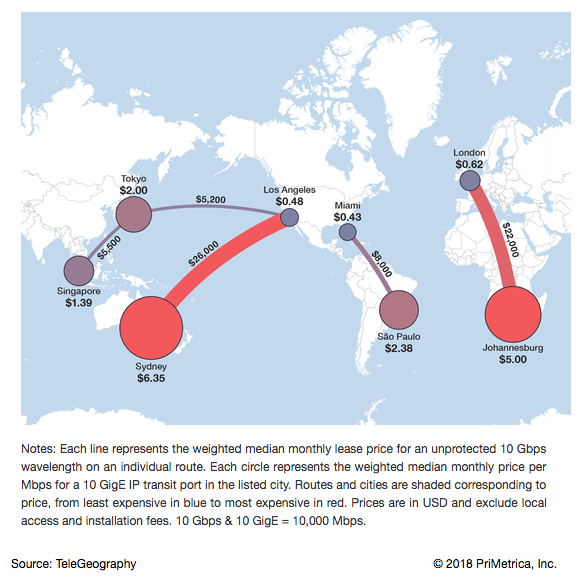In the landscape of modern business connectivity, managed ip transit services have emerged as a strategic solution for organizations seeking reliable, secure, and efficient internet connectivity. This article explores the key benefits of managed IP transit services and why businesses should consider adopting them to enhance their network infrastructure.
Enhanced Reliability and Performance
Managed IP transit services offer enhanced reliability and performance compared to traditional internet connectivity options. Providers of managed services typically operate robust, redundant network infrastructures with multiple points of presence (PoPs) worldwide. This setup ensures high availability and minimizes downtime by leveraging diverse network paths and advanced failover mechanisms. Service Level Agreements (SLAs) guarantee uptime and define performance metrics, providing businesses with peace of mind regarding service reliability.
Comprehensive Network Management
One of the primary advantages of managed IP transit services is comprehensive network management. Service providers handle all aspects of network maintenance, monitoring, and optimization, allowing internal IT teams to focus on strategic initiatives rather than day-to-day operational tasks. Managed services include proactive monitoring of network performance, traffic analysis, and capacity planning, ensuring optimal bandwidth allocation and efficient resource utilization.
Scalability and Flexibility
Managed IP transit services offer scalability and flexibility to accommodate evolving business needs. Providers offer scalable bandwidth options that can be adjusted dynamically based on fluctuating traffic demands or growth requirements. This scalability eliminates the need for upfront investments in additional infrastructure and allows businesses to align their network capabilities with operational objectives effectively. Managed services also support rapid deployment of new locations or services, facilitating business expansion without logistical constraints.
Advanced Security Features
Security is a paramount concern in today’s digital landscape. Managed IP transit services incorporate advanced security features to protect data and networks from evolving cyber threats. Providers deploy robust firewalls, intrusion detection systems (IDS), and Distributed Denial of Service (DDoS) mitigation tools to safeguard against malicious activities and unauthorized access attempts. Compliance with industry standards and regulations is also ensured, helping businesses maintain data integrity and regulatory compliance without compromising on security.
Global Reach and Connectivity
Businesses with global operations benefit significantly from managed IP transit services’ extensive peering relationships and global reach. Providers maintain partnerships with major carriers and internet exchanges worldwide, optimizing network routes and minimizing latency for international data transmissions. This global connectivity supports seamless collaboration, enhances user experience, and facilitates efficient data exchange across geographic locations.
Expert Technical Support
Managed IP transit services provide access to expert technical support around the clock. Service providers offer dedicated support teams comprised of network engineers and IT professionals who possess specialized knowledge and experience in managing complex network environments. Prompt troubleshooting, proactive maintenance, and rapid resolution of issues contribute to minimizing disruptions and ensuring continuous business operations.
Cost Efficiency
While managed IP transit services may initially seem more costly than traditional connectivity options, they offer significant cost efficiencies in the long run. Predictable monthly fees based on bandwidth usage eliminate unexpected expenses associated with infrastructure maintenance, upgrades, and downtime. Moreover, leveraging a managed service model reduces the need for internal resources dedicated to network management, optimizing IT expenditures and enhancing overall operational efficiency.
Conclusion
Managed IP transit services represent a strategic investment for businesses looking to optimize their network infrastructure while enhancing reliability, security, and scalability. By outsourcing network management to experienced providers, organizations can focus on core business objectives, achieve operational excellence, and stay competitive in a digitally connected world. The benefits of managed IP transit services extend beyond connectivity—they empower businesses to innovate, expand, and deliver superior services to customers globally.












+ There are no comments
Add yours